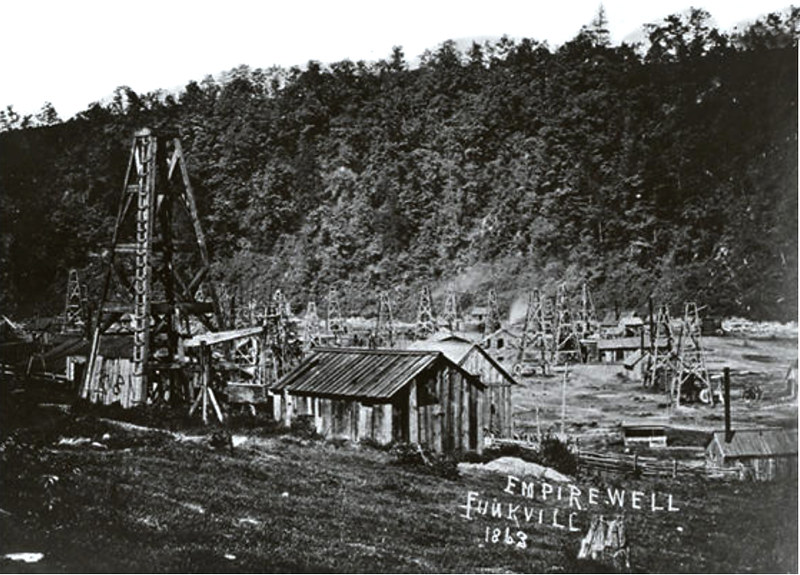
I want to start out with an image of the Empire Oil Well in Pennsylvania. This was our first major oil well, and it is appropriately named. Oil makes this world, this supposed utopia we're inhabiting.
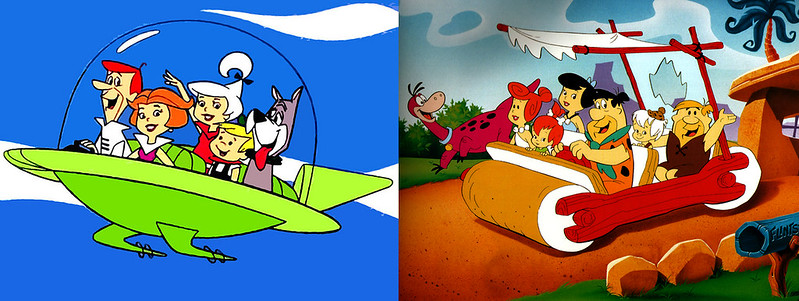
On the left is an image of the Jetsons, our supposed future, as imagined a while ago. On the right is our probable future [laughs]. It's interesting that even with the Flintstones, the car is central, for we can't imagine life without the personal automobile.
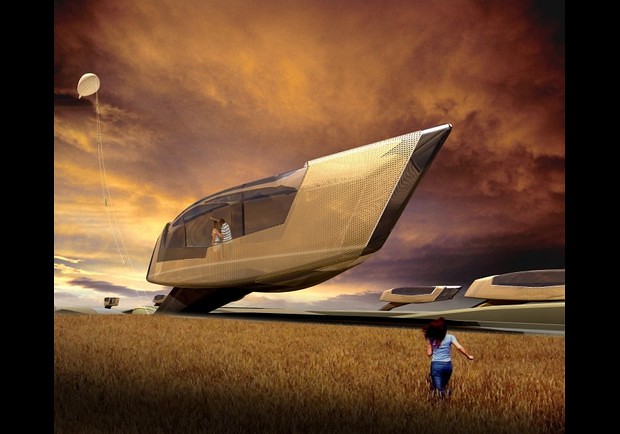
Just before getting on the train to come here, I saw this on Yahoo News. This is supposed to be our house in the future [laughs].
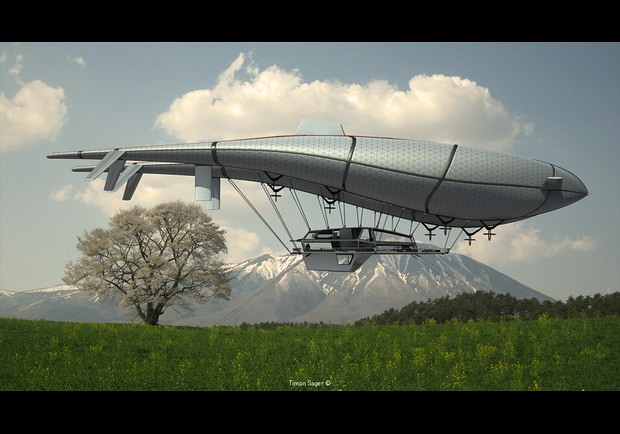
Another.
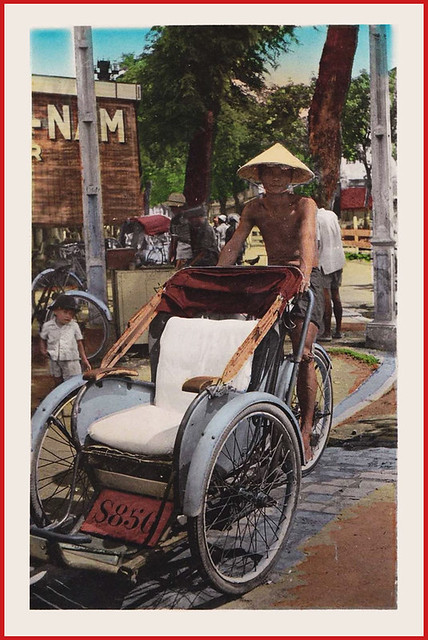
Instead of looking forward to living in such houses, and flying around like the Jetsons, I think we should look towards the Third World for clues to our future. This is a pedicab in Saigon.
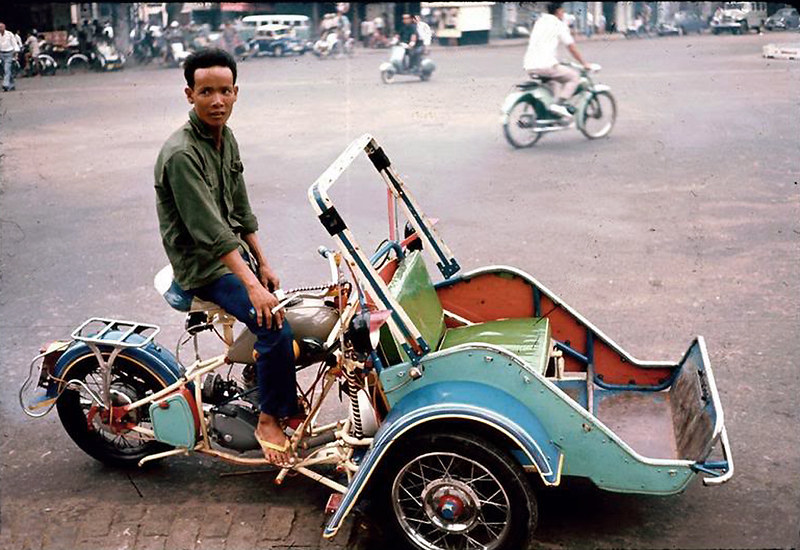
This one has a motor. It is already too high tech.
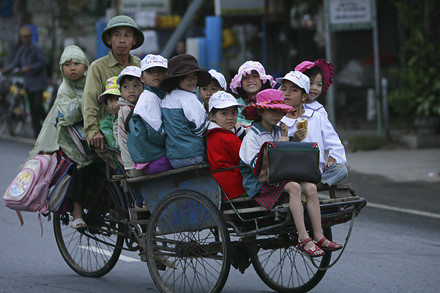
This is about right. That's in Hanoi.
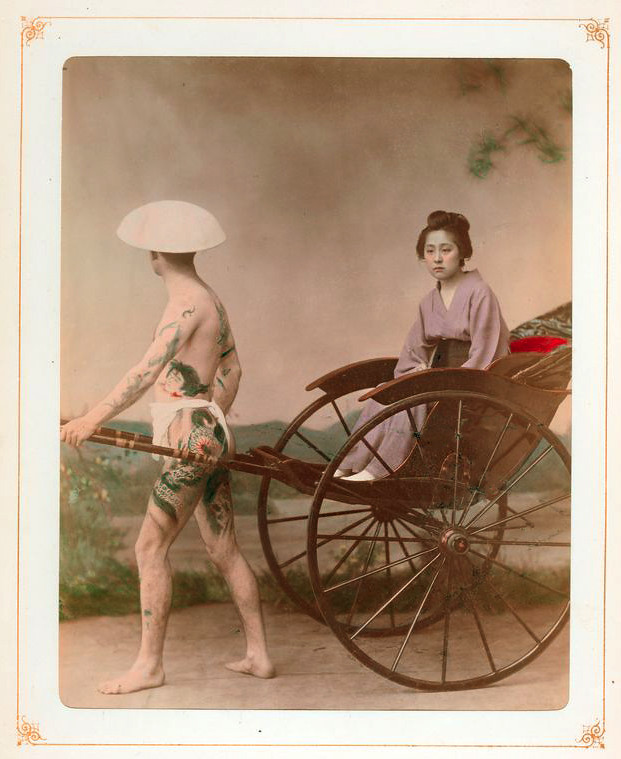
Here's an image of a 19th century Japanese rickshaw.
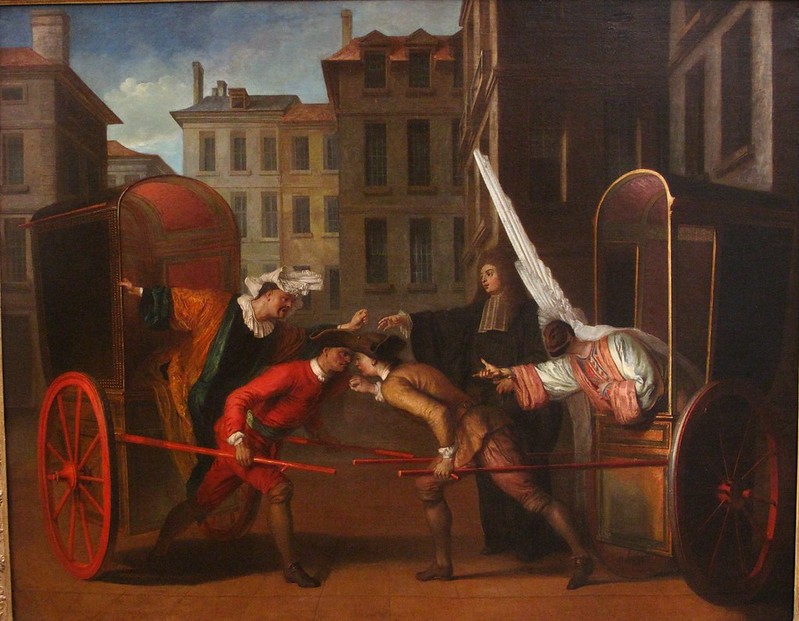
Just in case you think it's just an Oriental thing, here's a French painting from the early 18th century.
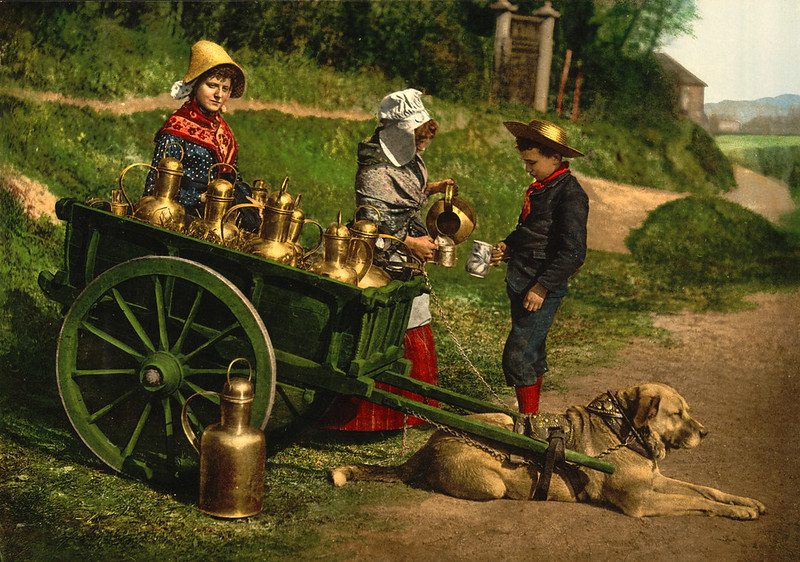
And here's a Dutch dog cart from the beginning of the 20th century.
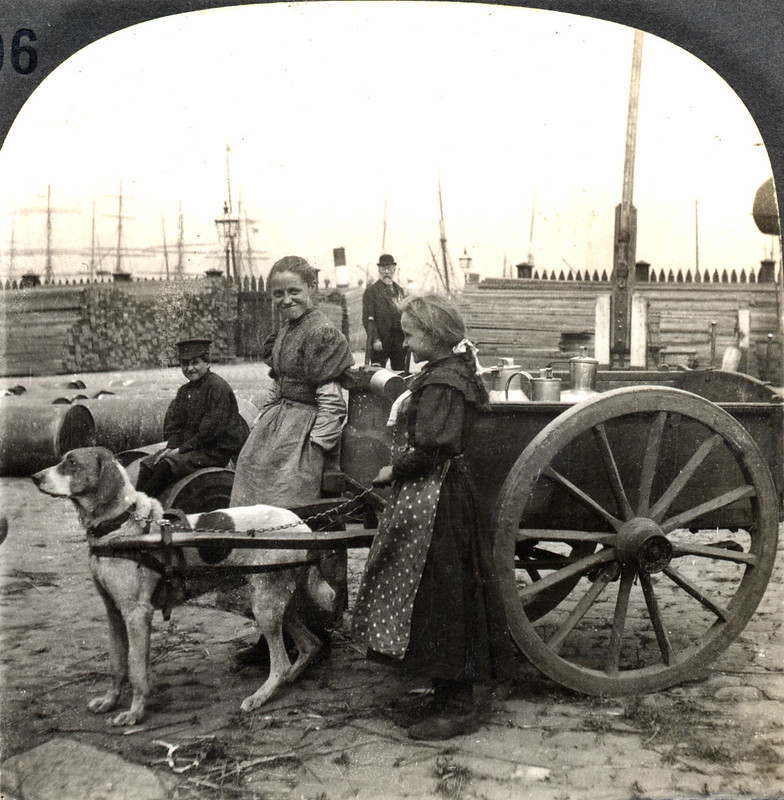
And here's another dog cart. This one from Antwerp.
OK, now I want to go back to Whitman because Leaves of Grass is such an overwhelming poem. It’s as fresh today as it was when it was written. Of all the nineteenth-century poets, no one has endured so well. Whitman is so fresh both because he embodies what we are still trying to achieve and because this country is more of an ideal than an actuality. But Whitman overlooks the fact that there were already people here. And although he celebrates equality and talks in an unprecedented way about the black man as his equal, he had serious reservations about the survival of the black man outside of his poetry. Whitman was afflicted with the prejudices of his time. Lincoln, too, was trying to figure out a way to move emancipated slaves to Africa or Panama. We read history so poorly because everything is reduced to a cartoon or a phrase, like Lincoln the Liberator… Though not often acknowledged, the camera was an inspiration for Whitman; he was very turned on by it. The camera was a new invention around that time and Whitman was a frequent visitor to one of the first photography galleries in New York City. In Leaves of Grass, it is clear that Whitman is trying to become the camera by being promiscuous and non-judgmental. He spent the last nineteen years of his life in Camden, New Jersey, across the river from Eadweard Muybridge and Thomas Eakins, early experimenters with the camera. The new invention allowed you to be places that you haven’t experienced physically. For the first time, Whitman and people of his generation could see actual images of anything in the world. It was terribly exciting—it was ecstatic—and Whitman was trying to match that promiscuity…
In the Preface to Leaves of Grass, Whitman wrote, "The Americans of all nations at any time upon the earth, have probably the fullest poetical nature. The United States themselves are essentially the greatest poem … One sees it must indeed own the riches of the summer and winter, and need never be bankrupt while corn grows from the ground or the orchards drop apples or the bays contain fish or men beget children upon women... Of all nations the United States with veins full of poetical stuff most need poets and will doubtless have the greatest and use them the greatest. Their Presidents shall not be their common referee so much as their poets shall." Every one of these statements is preposterous. America “need never be bankrupt?” We are bankrupt. America will have the “greatest” use for poets?” There is no art form that is more irrelevant right now. The thing Whitman celebrated—the ubiquity and the lustiness of the camera, that kind of looking—destroyed our ability to read Whitman…
The original premise of the Occupy Movement was that they were going to shut down Wall Street and the New York Stock Exchange. But the movement was bound to fail because they announced their intentions way ahead of time. Social media has been celebrated as an empowering tool that we all have, but it’s not. It is a tool that the State uses to monitor you, to clamp down on you. It has never been easier to know what we are up to thanks to Facebook and Twitter, cellphones, and blogging. We are constantly confessing because we are so vain and egotistical that we can’t help but tell the CIA what the hell we’re doing. By the time the Occupy Movement made it to the New York Stock Exchange there were hundreds of policemen for three blocks around and they got nowhere near their goal. They went to Zuccotti Park instead, which is about three and a half blocks away. The State can deal with that. You can occupy as many parks as you want.
I was down in Raleigh, North Carolina and people had to rent an empty lot to occupy that wasn’t even near the downtown area. That became the model nationwide. All of these parks became occupied and the movement made themselves a nuisance. Many people have said that the Occupy Movement changed the terms of the conversation. I would agree because they pointed the finger at Wall Street and the banks, not Capitol Hill or the White House. That was good. But as far as public relations, I’m not sure it actually worked. I have visited eight of these Occupy camps and many of them became a mess. In Philadelphia they annoyed the blue-collar communities that had to pass through their camp to go to work. I’m not sure the movement gained any sympathy; it might have done the exact opposite…
All utopian projects are attempts to be in community. In mainstream culture we feel isolated and purposeless. A utopian community is a way to bring us into contact with each other, physically, face-to-face. I saw that in the Occupy Movement where people sacrificed quite a bit to stay outside in the cold. It lasted through winter, rain, and horrible sanitation. Why did they put up with all of that? Because they felt a need to be together, to sleep close to each other. It was an unspoken desire to reestablish community again…
Downtown has become an exclusive zone for the rich so the Occupy Movement went downtown. They went to where they could not afford to be otherwise and made a mess out of it. That was good. In Philadelphia, they meet across the street from the most expensive apartment building in the city; at night you can see the rich people looking down at them, literally. I fantasized that the Occupy Movement would spread out to surround all of the most expensive apartments and make people as uncomfortable as possible. But they moved away from attempting to disrupt the system to just occupying. Occupying became the meaning itself, which I think was counterproductive. They also resisted having a list of demands—I talked to a bunch of these people and they were all over the place. I agreed with all of their individual complaints and demands but you have to have a priority as a movement. Not everything is equal because we don’t have that much time. I don’t think we’re impatient enough. Time named the protester as its “Person of the Year” in 2011. If Time Magazine thinks you’re okay then you aren’t doing anything. For us to move forward, new strategies have to come into play. I leave that to you to figure out what those are…
The assembly line is an American invention that was inspired by meat-packing plants in Chicago that took apart cows. It is a way to turn the worker into a steady, efficient machine. That kind of attitude has permeated everything. We are not expected to be humans—we are expected to be machines. Let’s examine American football. A football player looks like a machine; he has a steel head and his shoulders are bulked up. You can barely see him. Productivity is the emphasis here, quantity over quality. You measure yourself by how much you produce, how much you have gained. Football is the perfect game for that because everything is quantified. In soccer they only count the goals. They don’t care how many yards you run back and forth, whereas everything is counted in football: yards gained, yards lost, yards thrown, passes deflected, fumbles recovered. Look at the boxscore for football and it’s a whole page of numbers. I find it to be a good index to our pathology. Individually, each one is given credit for what he did on the field. Even if the team loses, the player is still given credit for gaining twenty yards. There is a pretense of fairness in that everything is acknowledged. The more unfair we become as a society, the more examples we have of these contests where the amateur can rise to the top: American Idol, America’s Next Top Model and America’s Got Talent. The premise is that you can be a nobody but you’ll be rewarded if you have talent. But it doesn’t translate to reality because some people are very privileged and some people have no chance. The emphasis on the amateur contest and sporting events is a way to keep up the pretense of a fair society…
Let me talk about my individual practice as a writer, as an artist. It was very disturbing for me to give readings for a while. I was giving readings all over the country and overseas but the only people who would show up were poets or other writers, with few exceptions. Something is not right about this. I appreciate the ones who show up but how did it happen that writers became shunted to the side? I think it’s important for us to have a role to play in the community-at-large. What can the individual artist do in regards to the utopian project? How can he add his voice? It’s not enough for artists to be talking to each other. There has got to be a way for us to communicate with the people across the street without compromising ourselves. Whitman is an example of someone who is perfectly clear and perfectly democratic and perfectly avant-garde. Part of me wants to write poems and stories that no one wants to read because literature and art allow you to go places that are socially and politically and morally unacceptable. I think art should allow for this to happen. César Vallejo is a good example of someone who went off the deep end and wrote stuff that doesn’t make any sense and yet he also had a very socio-political consciousness. It is possible to do both things. I don’t want to be dogmatic but it’s important not to lose sight of this potential role in the community. I don’t think there has ever been a society that marginalized the artist like this culture has. In Europe streets are routinely named after artists and writers, not just their own, but foreign artists and writers as well. But that’s the last thing we want to do here. We don’t mention our intellectuals. Walt Whitman’s birthday is May 31st but we don’t acknowledge that—we don’t care. So in the end he’s not a presence. I think we would be a better people if we read Whitman…
***
The images you see here are from my photo project, State of the Union.
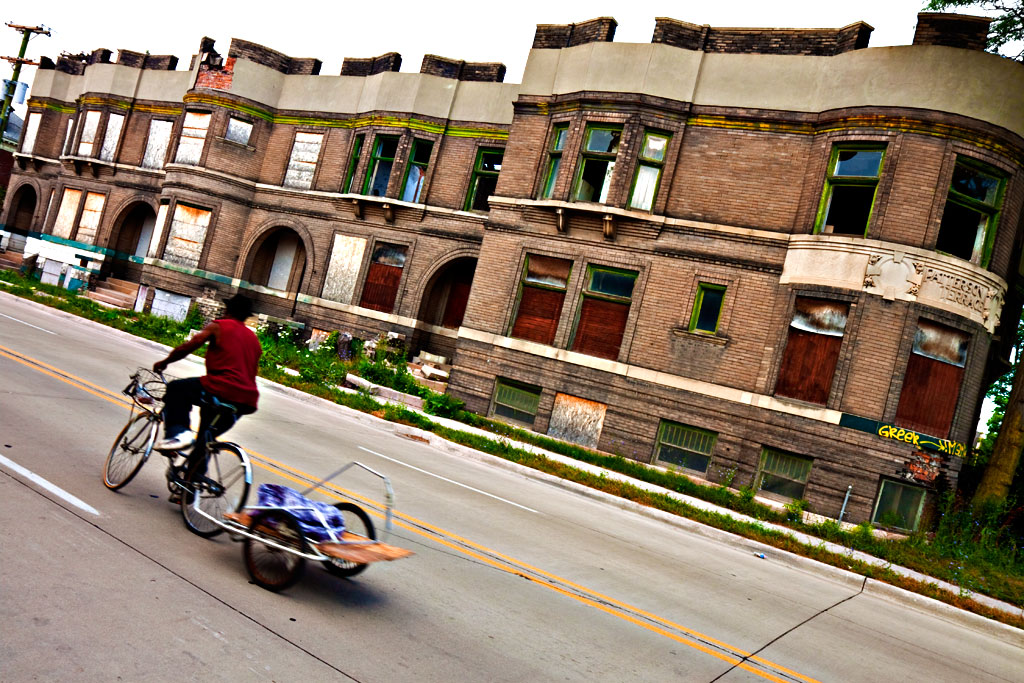
This is in Detroit. This guy came up with a solution.
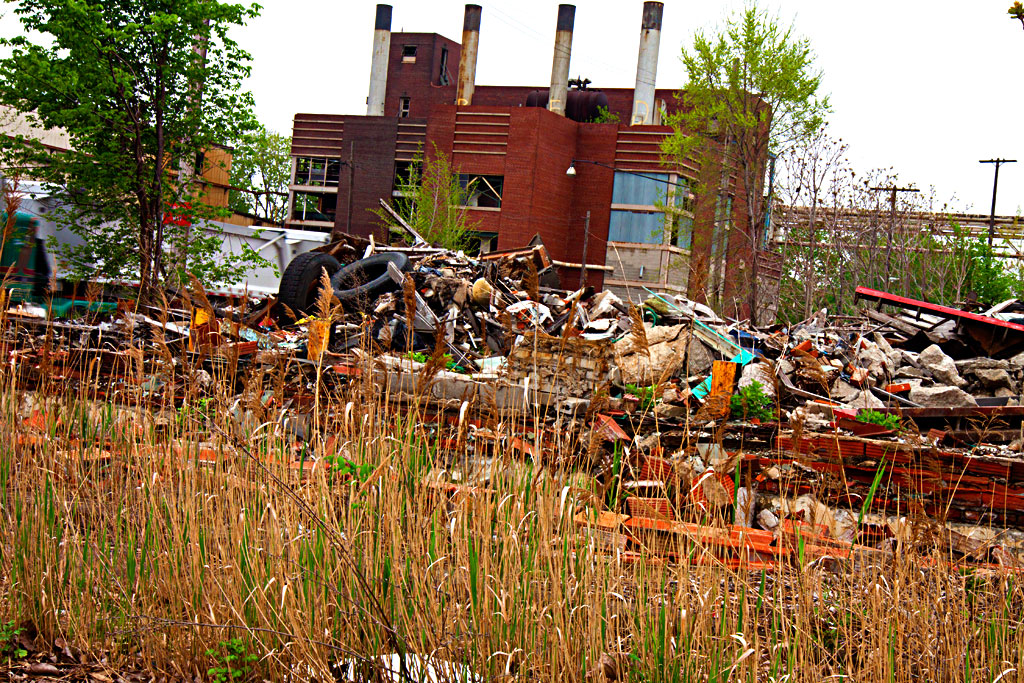
Detroit.
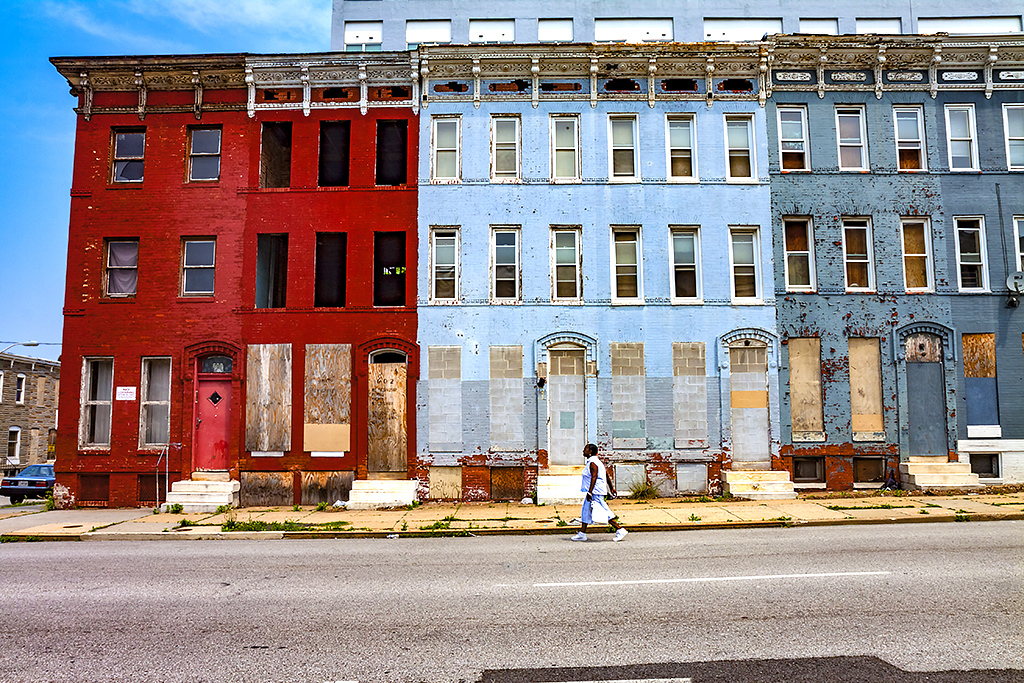
Baltimore.
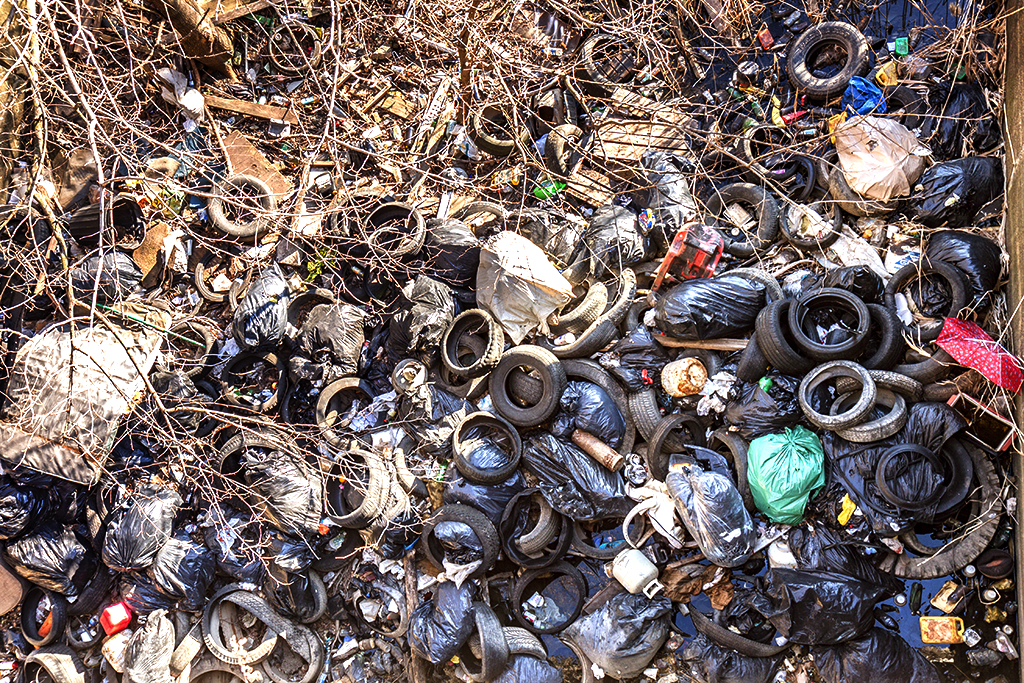
Philadelphia.
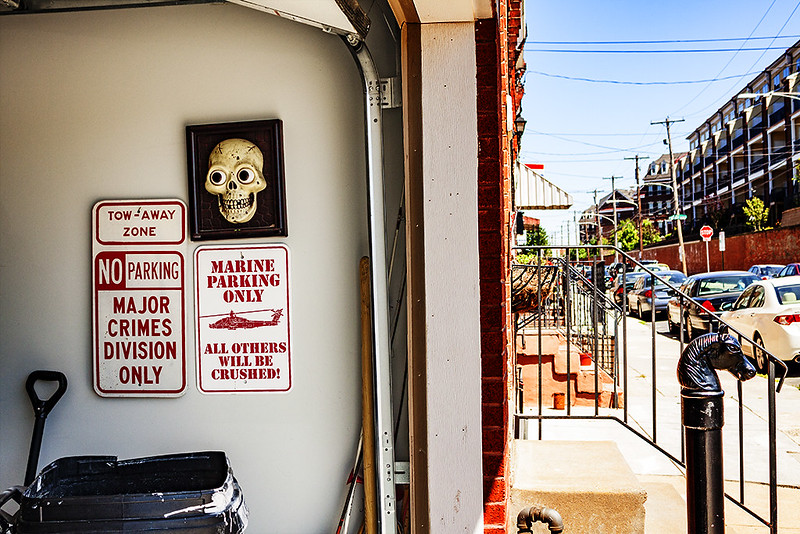
Camden.
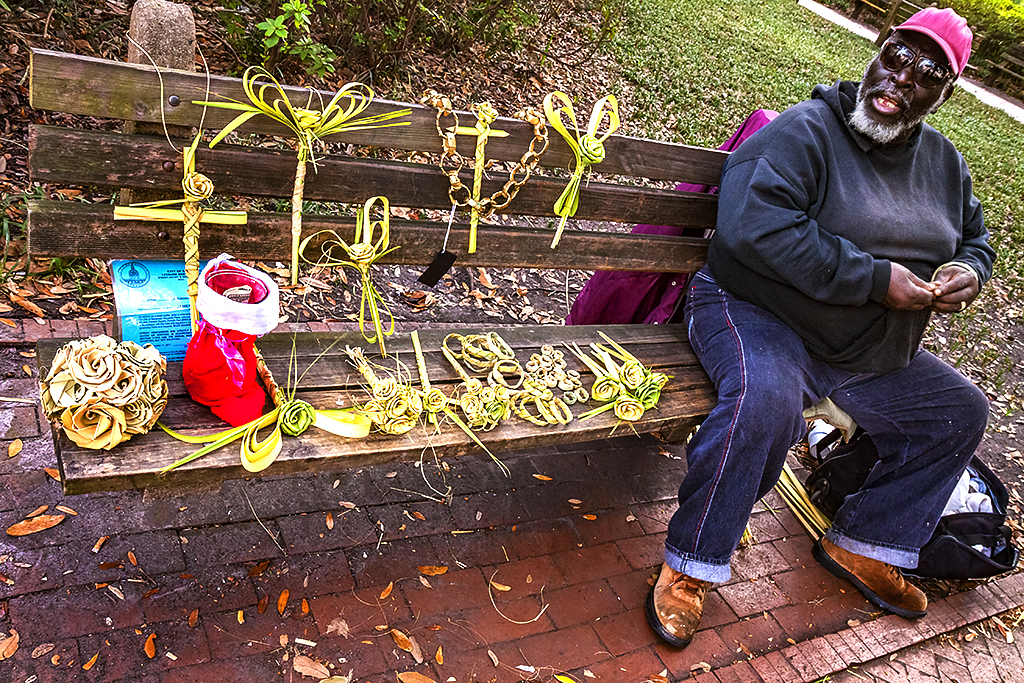
Savannah.
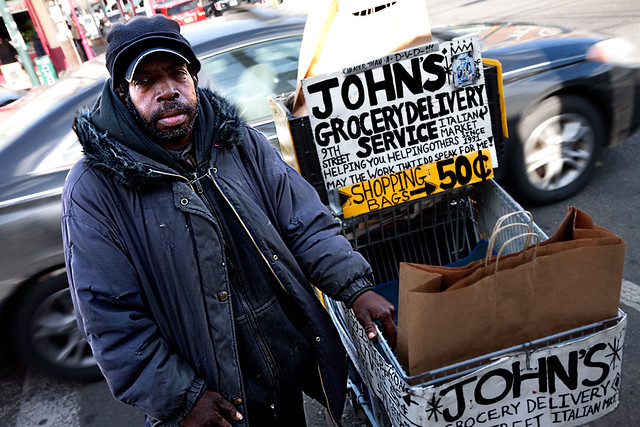
This is John, in my neighbordhood in Philadelphia.
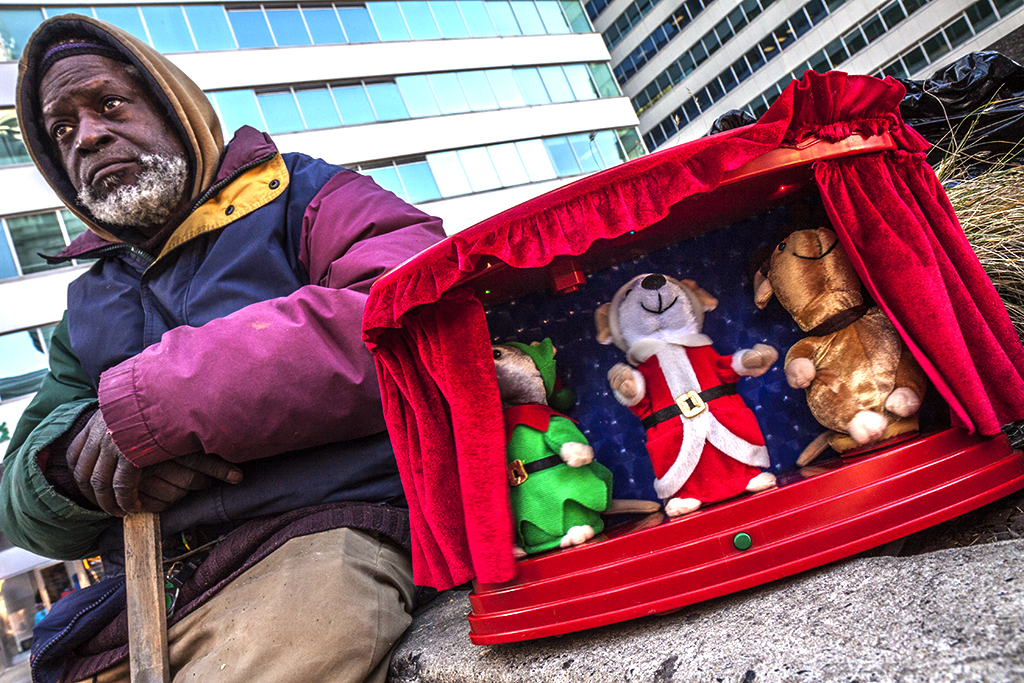
Philadelphia.

Philadelphia.
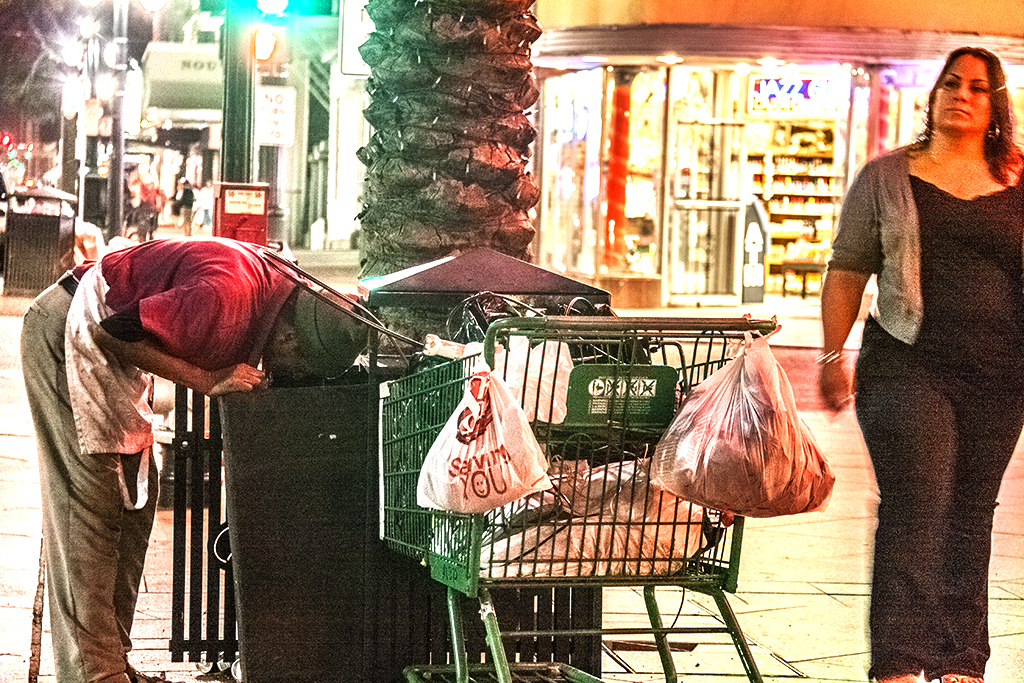
New Orleans.

Boston.

Knoxville. He had these cards out, but without prices, so I suggested that he put out a price card. "Otherwise, people will think you're hustling them!" I said.
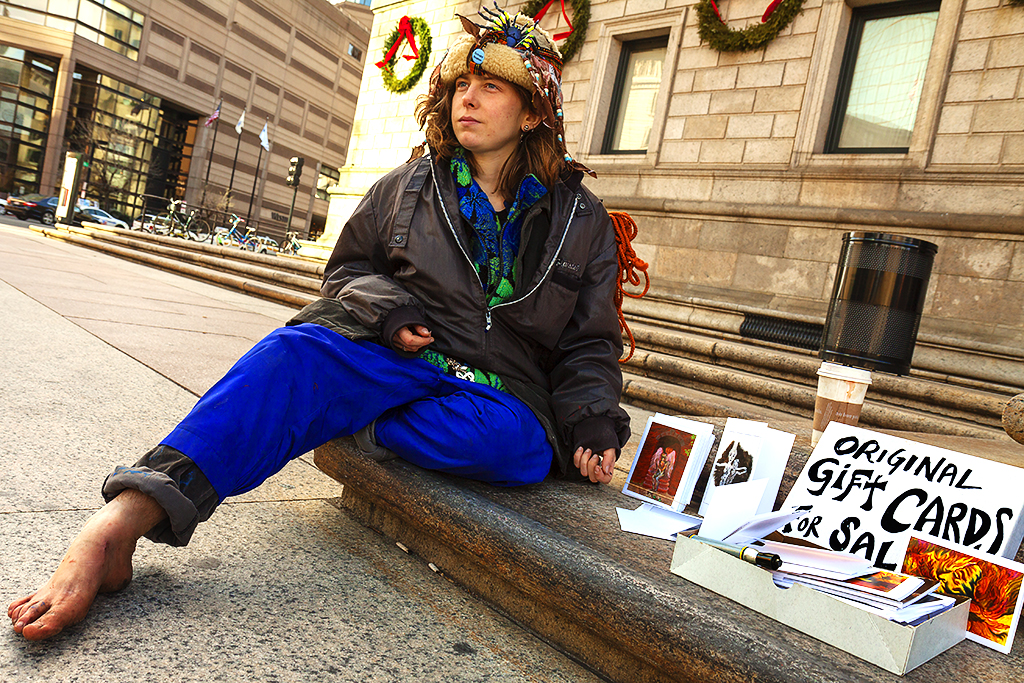
Boston. This is Katie. She said, "From the age of twelve, I've always wanted to be an animal," and that's why she goes barefoot and lives outside as much as possible. She bragged about sleeping outside in minus 10 degree weather in Montana, and she has gotten as far as Alaska. She has read Thoreau, so I said, "If you want to be an animal, then Thoreau ain't shit."
"Yes, Thoreau ain't shit," she said.
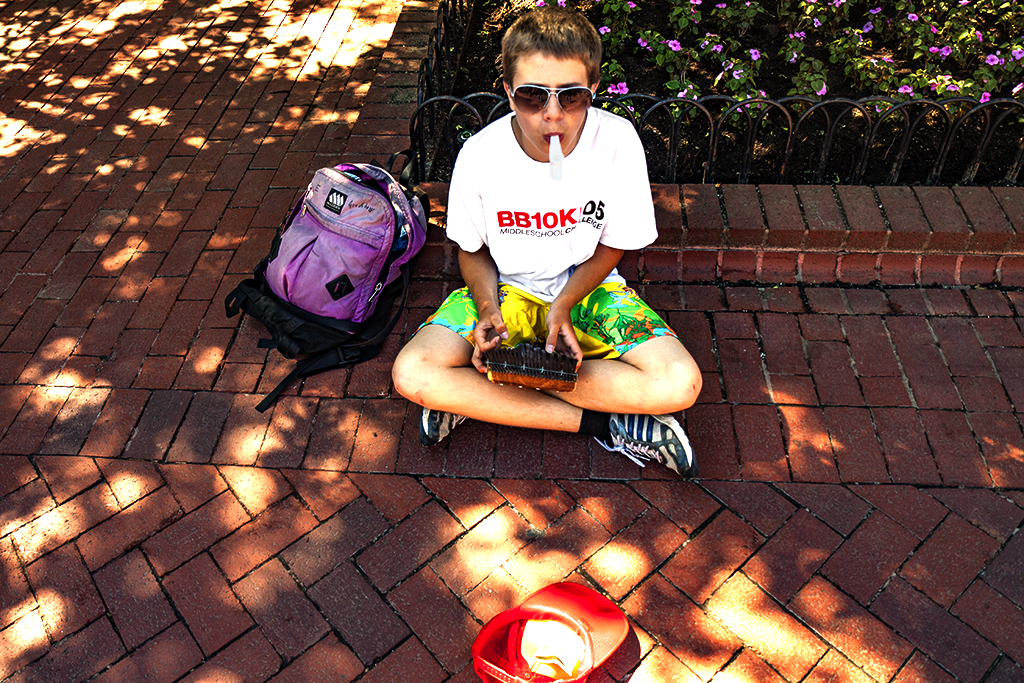
Boulder. He told me he had invented that combination.

Philadelphia. He said the bad economy had not hurt him, because there were now more empty stores for him to play in front of.

Philadelphia.
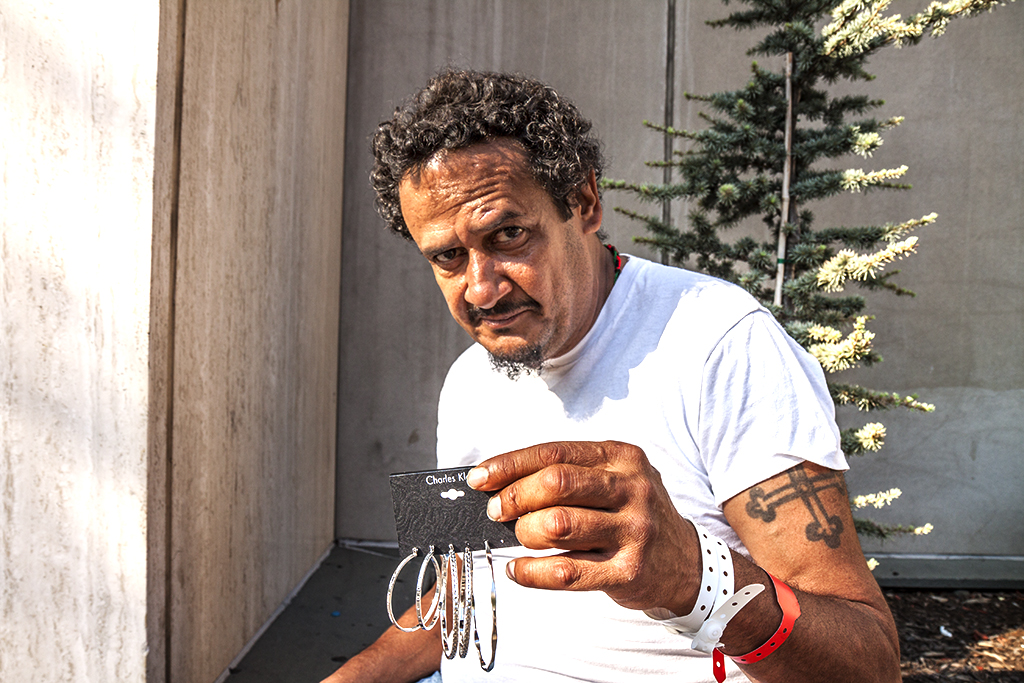
Philadelphia.

Philadelphia.

New York. A couple of minutes after this photo, six cops surrounded us. One cop said to this guy, "We got a report you were kissing a mouse for money!"

Detroit.
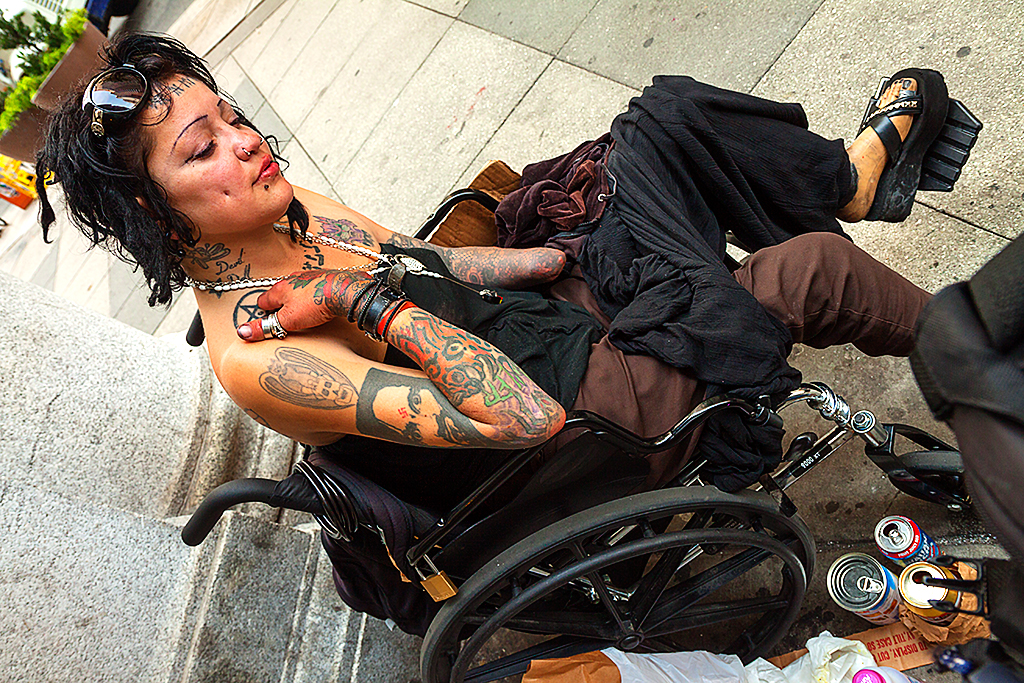
Philadelphia. That's Kimberly.
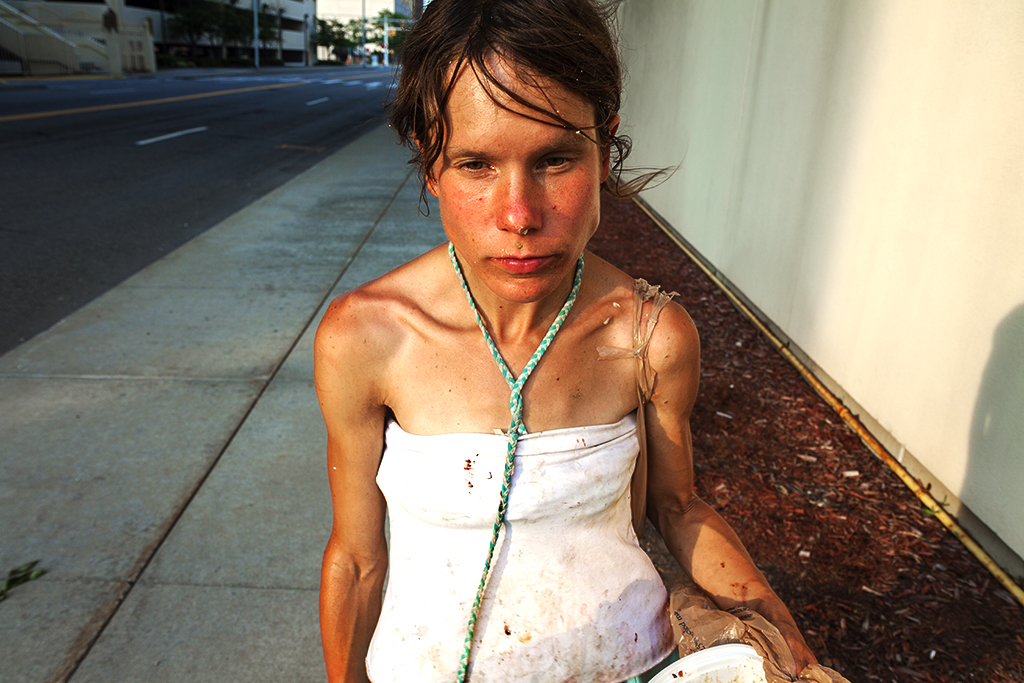
Detroit. She was eating from a trash can outside the Greyhound station, and people were laughing at her.
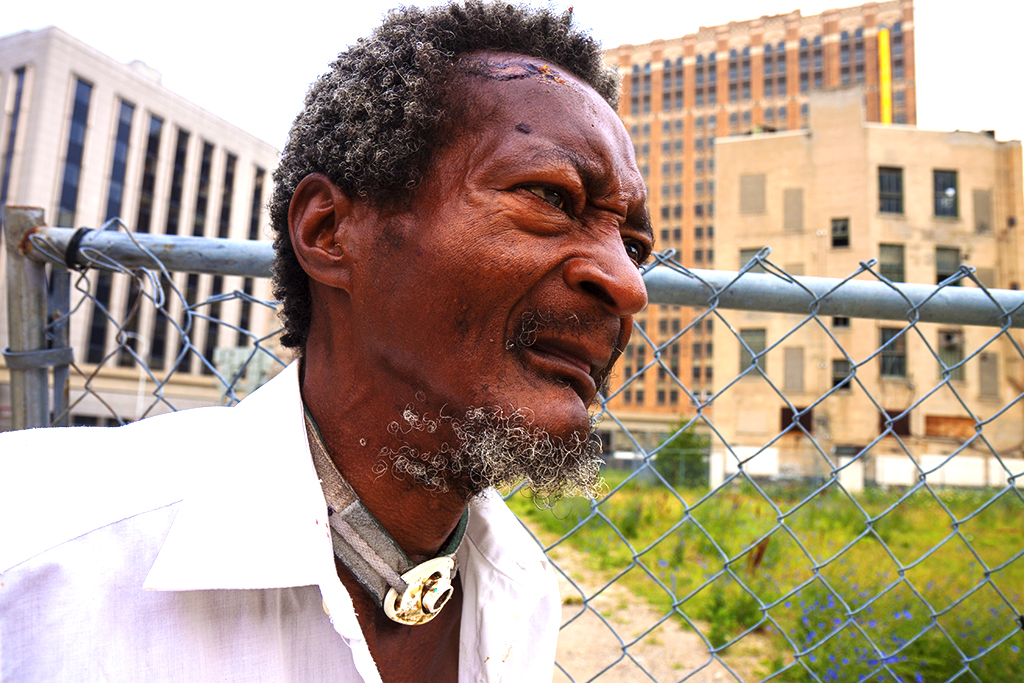
Detroit. This man was in pretty bad shape. He said he couldn't afford his prescription medicines, so I gave him, like, nine bucks. He wasn't panhandling. He didn't approach me. I approached him.
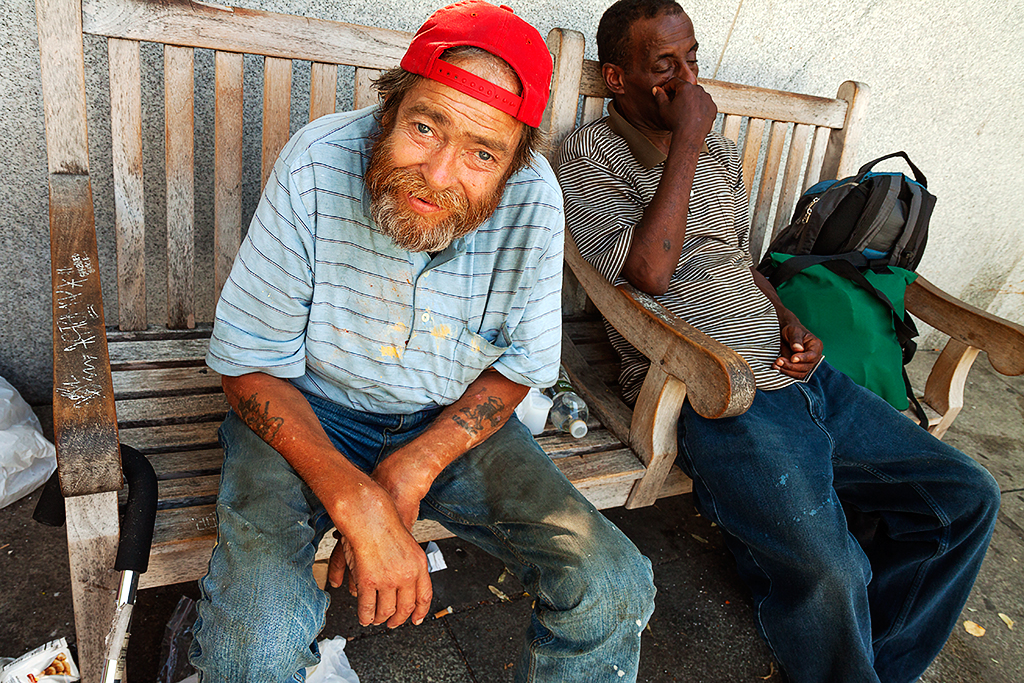
Philadelphia. This guy had such good breath, I wanted to kiss him. Turned out he was drinking mouthwash to get drunk.
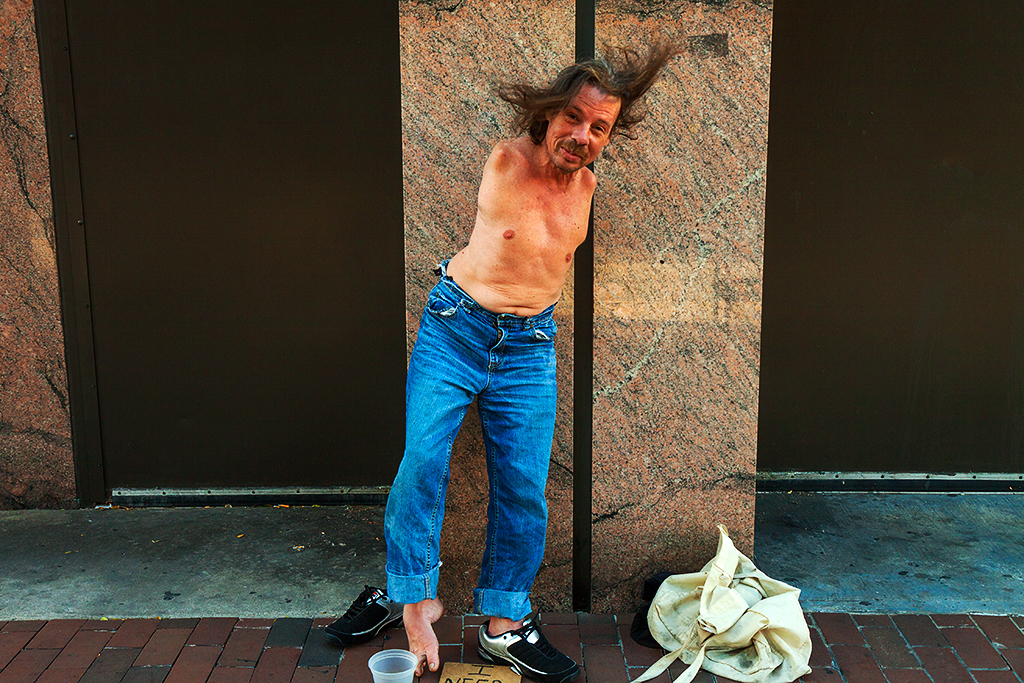
Philadelphia.

This was taken in the tent city in Camden. She wouldn’t open her mouth because she had such bad teeth. I got her to laugh by saying, “My teeth are worse than yours.” In the summer the population gets up to one hundred and twenty people, maybe a little bit more. In the winter it goes down to seventy-five. There is no electricity, no running water, one bathroom—a honey bucket—that you can smell as soon as you enter the city. But here’s the paradox: I never felt safer than when I was in the tent city. They are good people and they look out for each other. They looked out for me whenever I showed up. I made myself popular by always bringing a lot of beer—a backpack full of beer. But they have no long-term plan. They are not trying to plant or raise anything; they are totally dependent on outside help. There are a couple soup kitchens nearby where they can get food so they aren’t starving. But I think it’s possible to set up a tent city and be somewhat self-sufficient. One of Martin Luther King Jr.’s last projects before he was killed was to help set up a tent city on the Washington Mall called Resurrection City. Robert Kennedy was also a kind of godfather for the project and he was killed, too. What King accomplished with regards to black and white relations was alarming enough to the power structure, but when he moved into class issues they had to get rid of him. Resurrection City lasted about two months. The precursor to this occurred during the Depression when veterans of World War I tried to occupy Washington DC. The government had promised them a bonus for their service during the war but the veterans were asking President Hoover to give them their money sooner because of the desperate conditions of the Depression. When they occupied DC the government called in the troops to evict them and even killed some of them in the camp, which was also occupied by their wives and kids. This is a clear example of the government turning on its veterans, its people. But besides disrupting the system, you can embarrass the system. You can show the world how Americans live. Every homeless person is already a protester. If you have a camera you should make them as visible as possible to challenge the propaganda of the “shining city upon a hill” and the idea that this is a utopian society.
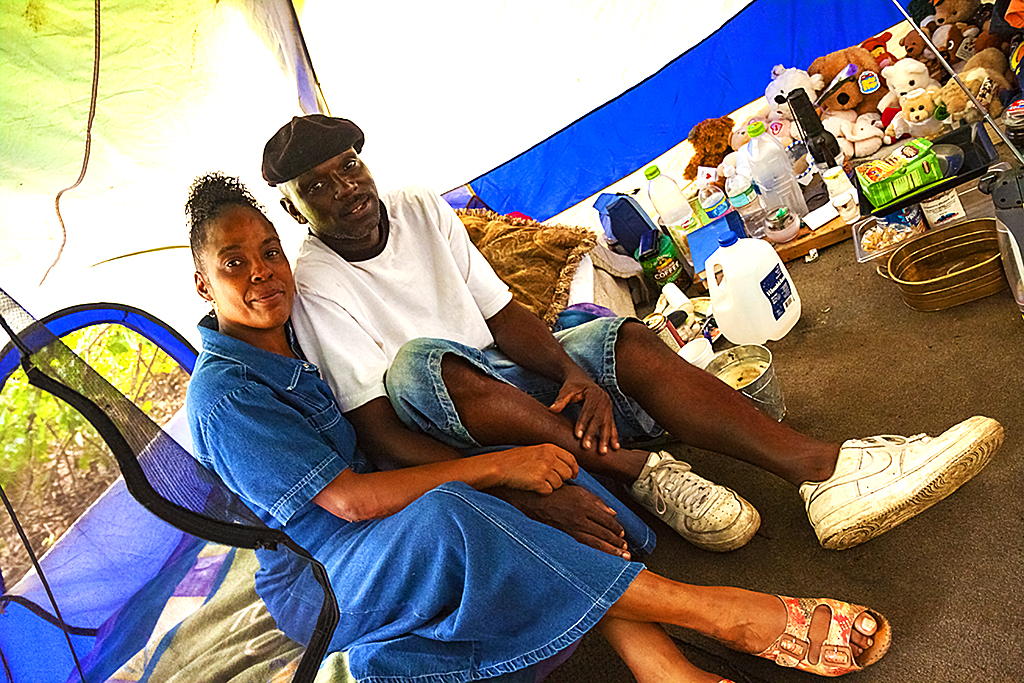
He was a longshoreman, had work, did a lot of construction stuff. And she’s deaf. They do what they can to survive. Camden had the biggest shipyard in the world. Now it’s gone. These people get blamed for being losers but everything has been taken away from them. Look at the attempts at domesticity inside this little tent.

Camden.
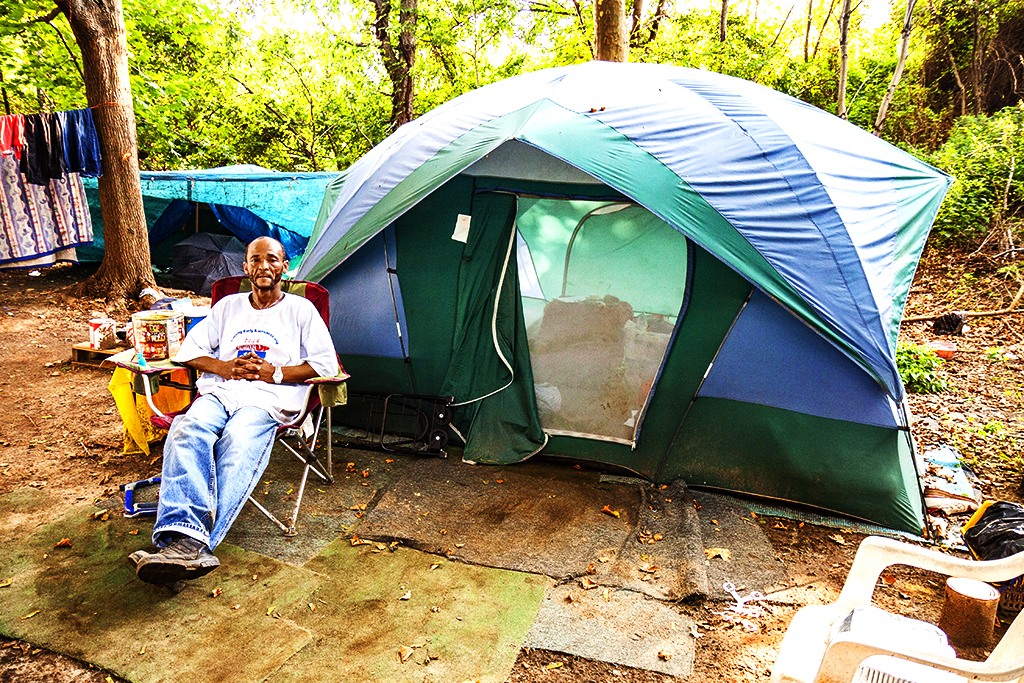
Jamaica was the mayor of Tent City. People seemed to love him but sometimes he tried to get money. As soon as you have a hierarchy you’ll see some funny business going on. But he maintained order. A seventy-five-year-old man said that when he got sick, Jamaica took him on his back to the hospital. He’s not bad. He’s a good guy. He’s a Vietnam vet who tried to commit suicide by jumping off the Ben Franklin Bridge and a white cop saved him. The white cop latched onto him and they landed in the water. The white cop was paralyzed and Jamaica survived.
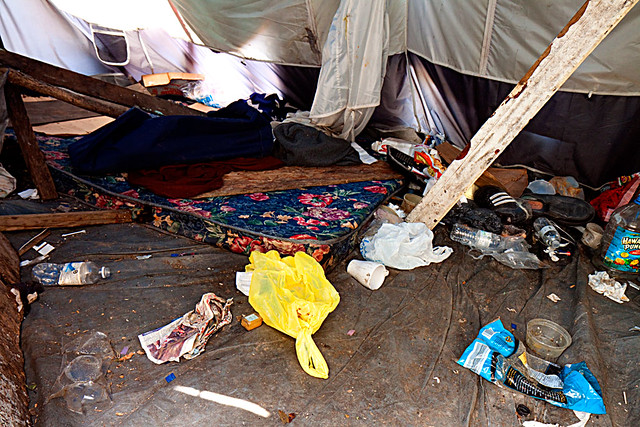
Camden.

Savannah. There were about six people living in this wooded area. They had no electricity and no running water.
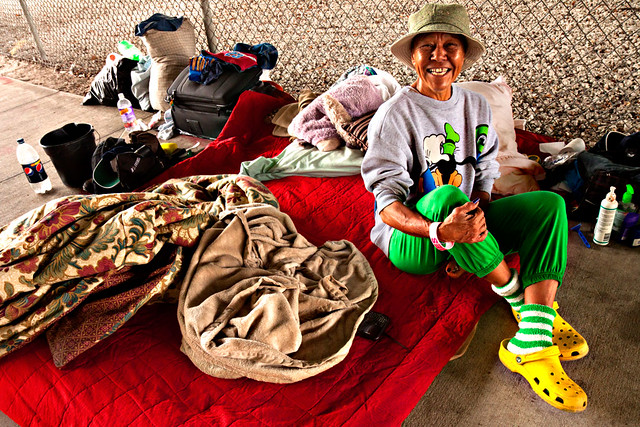
Orlando, Florida. This woman came here at the worst time from Puerto Rico, in 2008. She and her son had work at the beginning and now they’re living under a bridge. All she wanted was to get back to Puerto Rico but she couldn’t afford it.
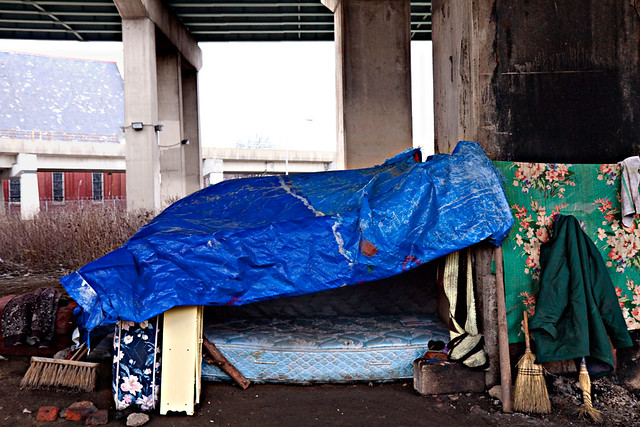
Philadelphia.
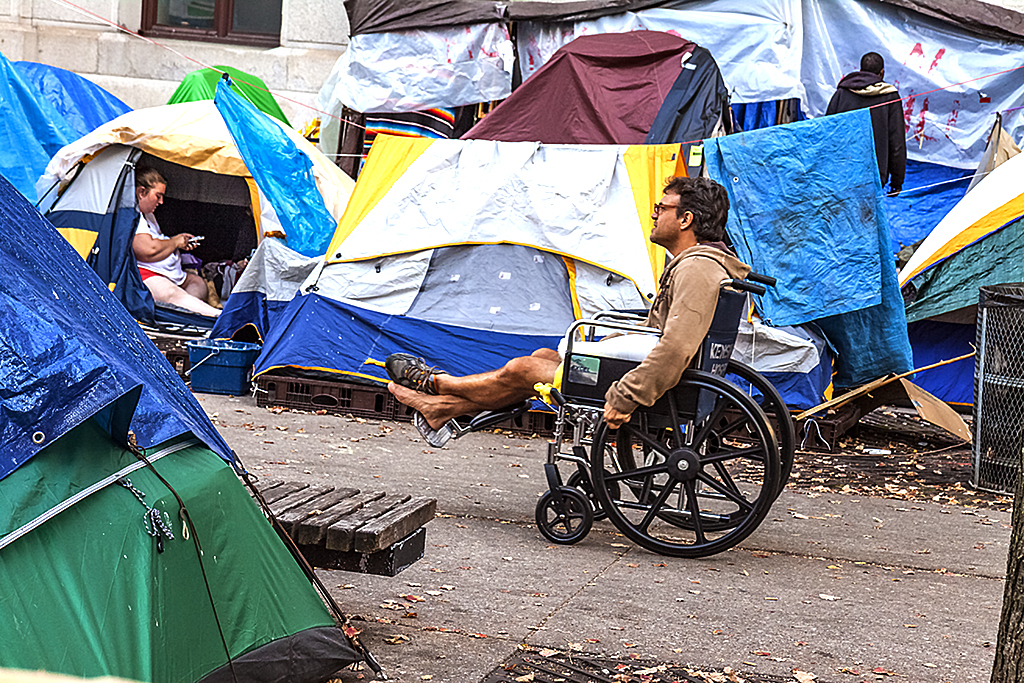
Philadelphia.
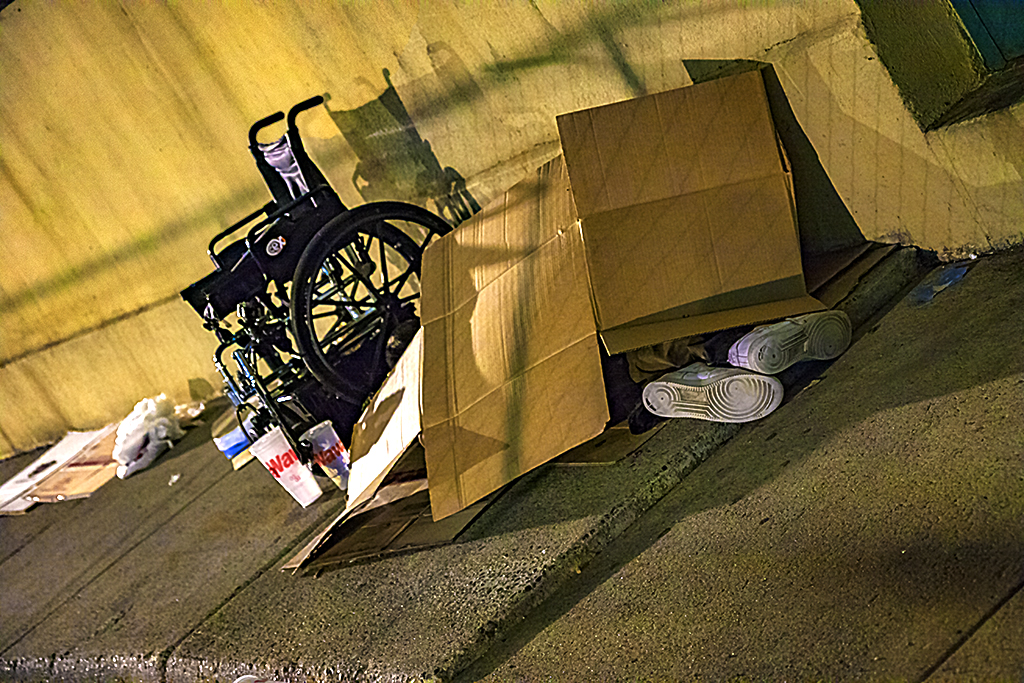
Philadelphia. There's a couple under there. The woman is Kimberly, the one in the wheelchair shown earlier.
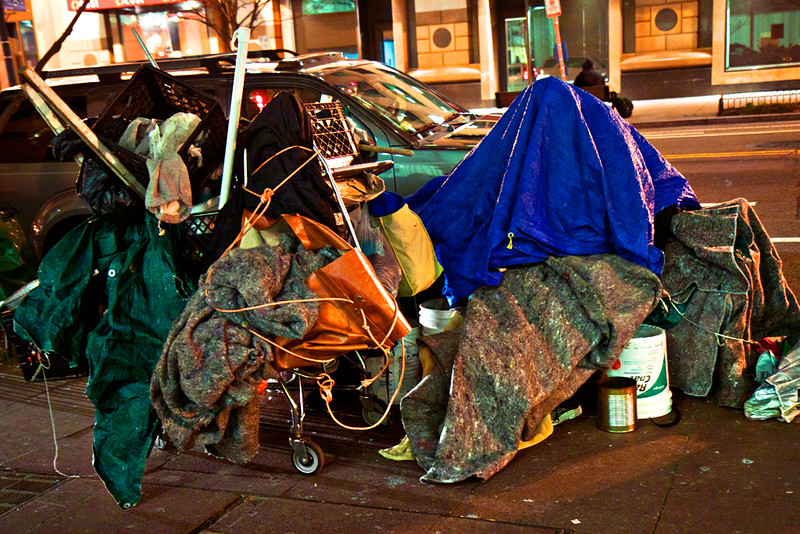
This is Washington DC. It’s about two blocks away from the basketball arena.
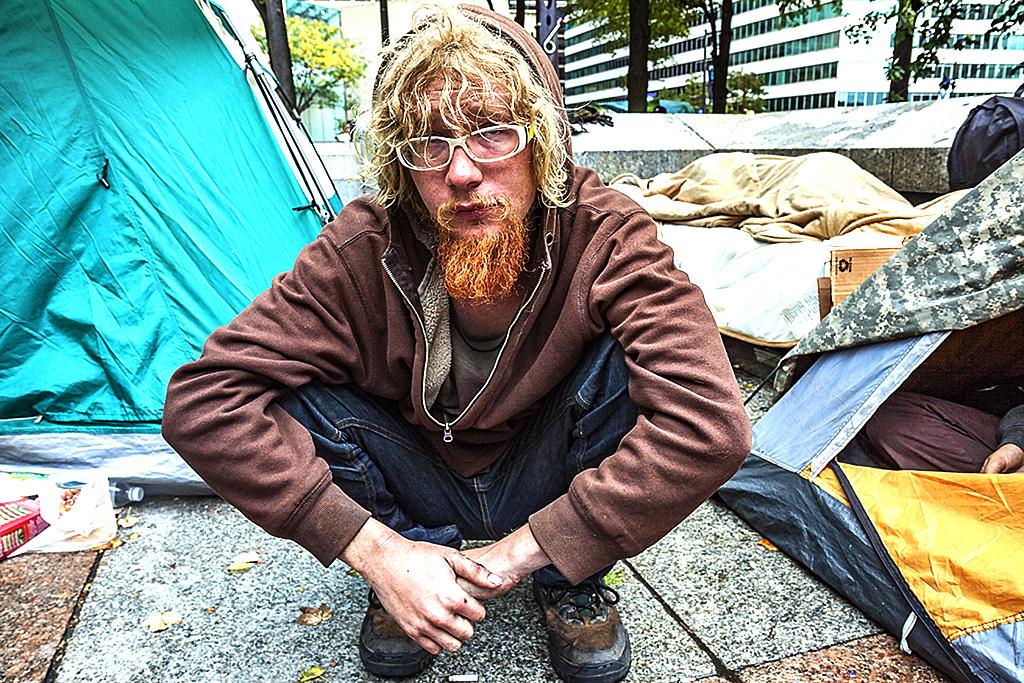
People who didn’t fit in would gravitate towards the Occupy camps. This guy was train hopping, just a drifter. I asked him how many jobs he’s had and he said one. It lasted for two years and he just couldn’t do it.

Getting back to Whitman’s “I contain multitudes,” it’s easy to pretend you are a multitude the higher on the social scale you are on. The richer you are, the more possibilities are open to you. If you’re stuck in some stupid job you know your limitations. It is brought home to you everyday. A culture that allows you to pretend that you can constantly reinvent yourself creates instances like this. I’m not sure what this guy is trying to do and I’ve talked to him a few times. It’s all image. I don’t think it has any substance behind it. I’m just telling the truth.
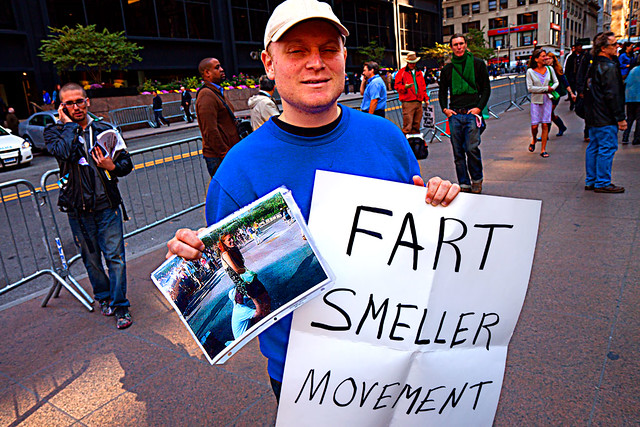
New York.
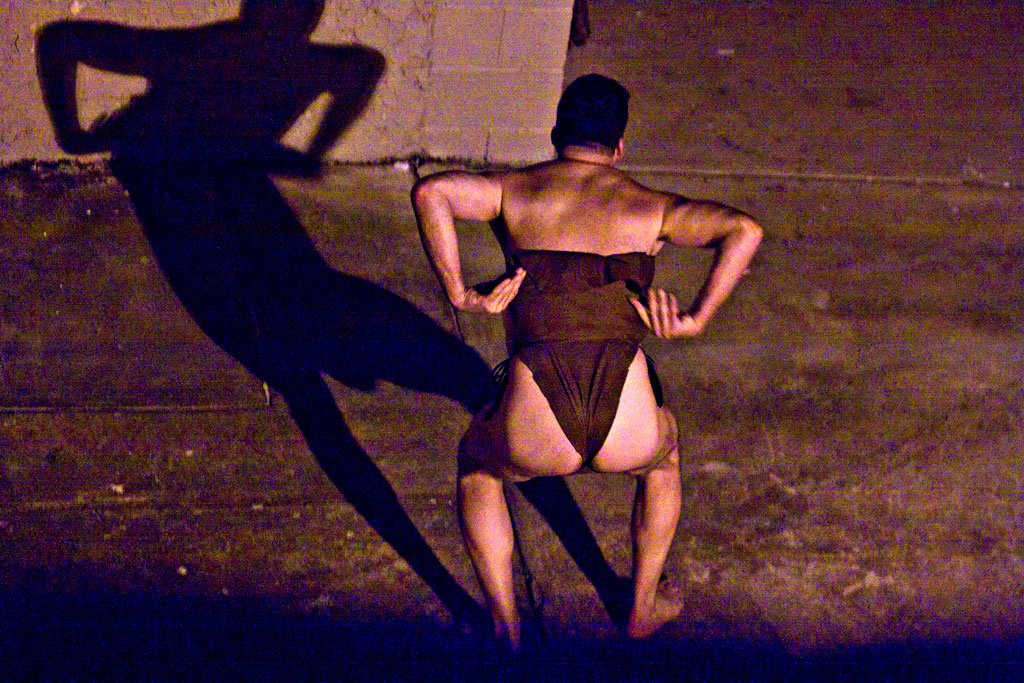
Philadelphia. This is one of my neighbors. My wife said, "We should call the cops," but I said, "Nah, don't worry. He's harmless. He's like a poet, sort of."

This shirt, “Fuck All My Enemies.” The open hostility. I don’t get it. The guy on the left is cool. They look like they want to kill me. But what did I do?

Philadelphia.
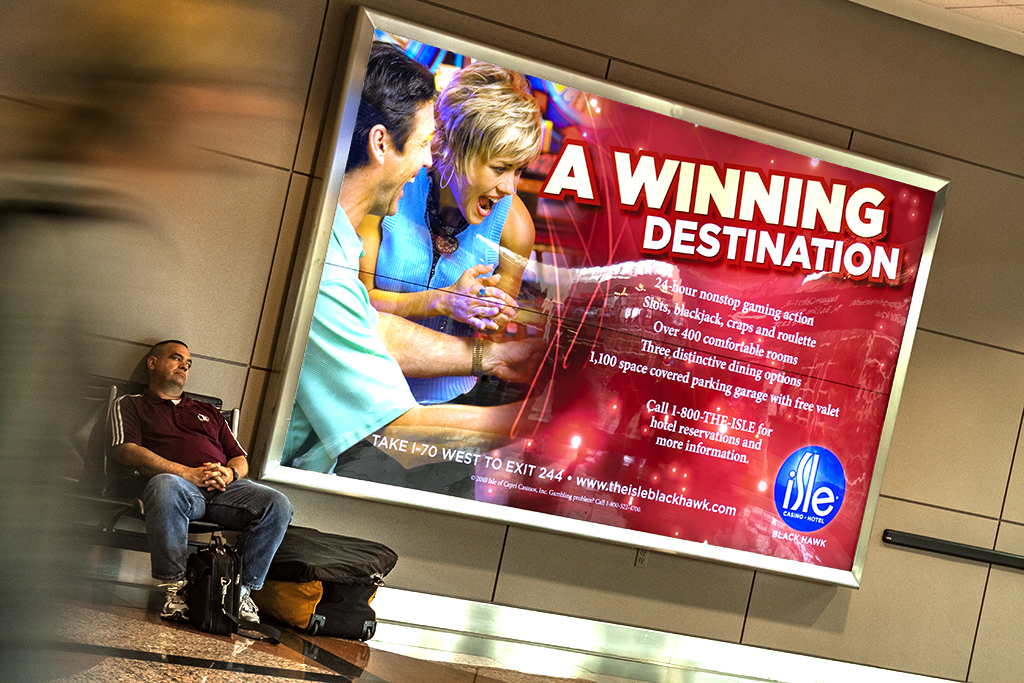
Denver.
Traveling around the country I see casinos everywhere. In Kansas City, Kansas I saw a casino in an old church. In Bethlehem, Pennsylvania, Bethlehem Steel was the second biggest steel producer in the United States. They provided much of the steel for the Golden Gate Bridge and the Empire State Building. Now a casino stands on that real estate. We went from making stuff to hustling ourselves. In Philadelphia, you used to have to go to Atlantic City to gamble. Now there’s one casino inside, one north, and one south of the city. That’s true desperation. You don’t know what else to do.
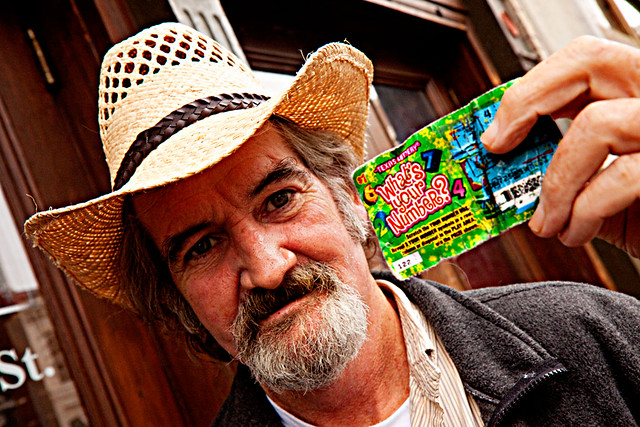
Austin.
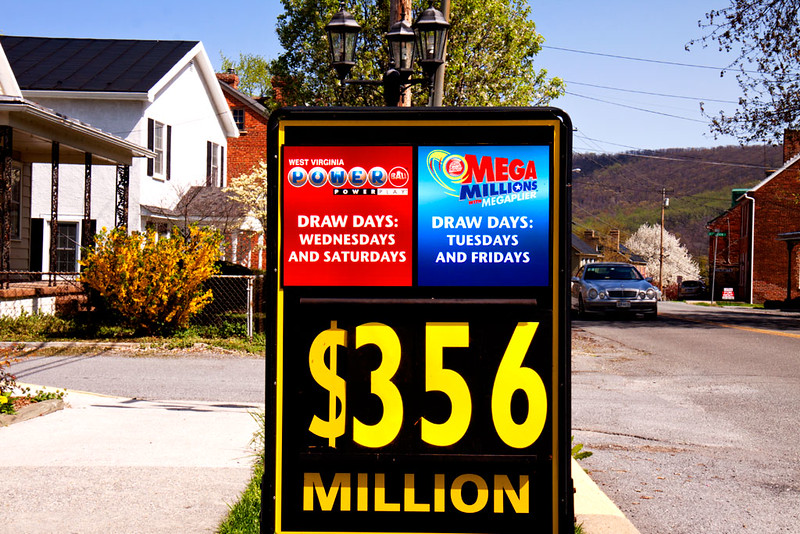
West Virginia.
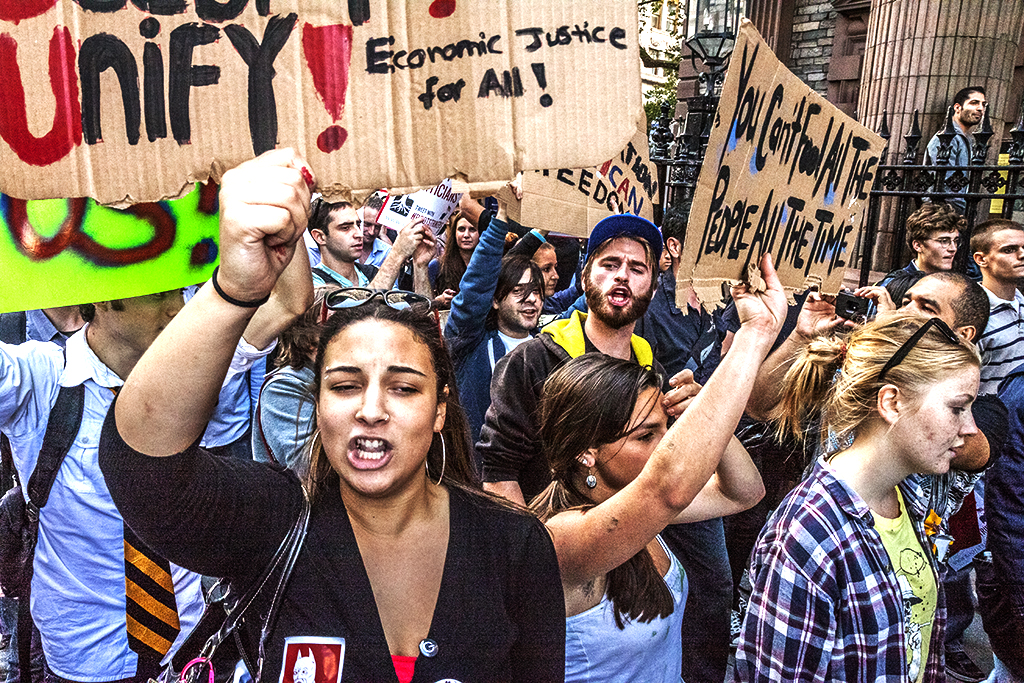
Occupy in New York.
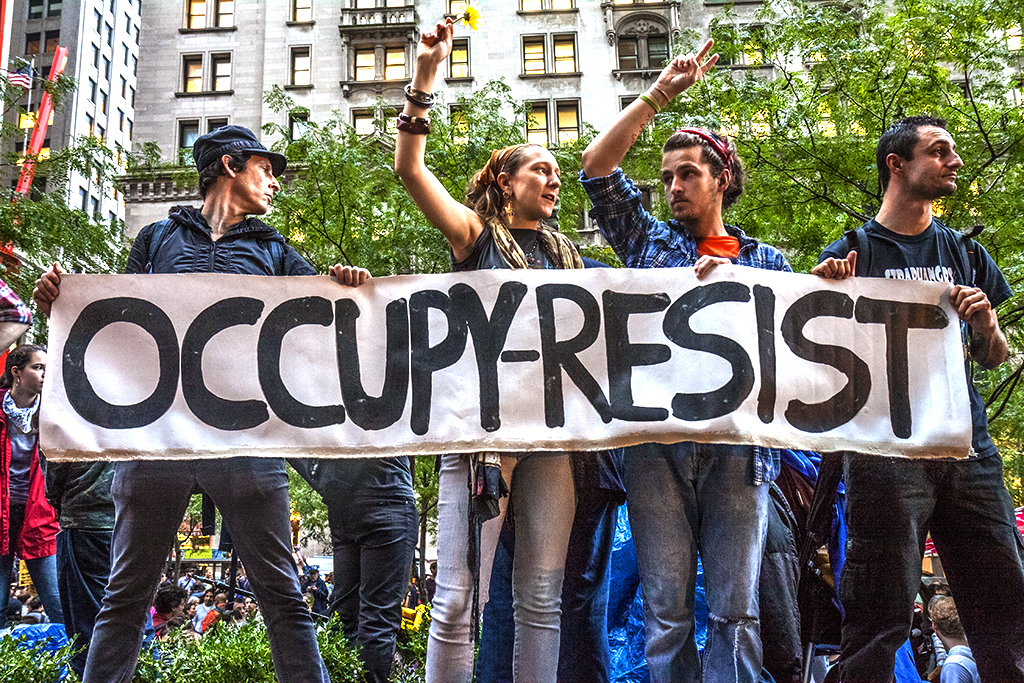
New York.

New York. It’s such a shame to see it not going anywhere. I fully expect it to come back but there has to be new tactics. The night before this photo was taken it rained very hard. A lot of people converged because they heard the cops were coming in the morning. The sense of solidarity was incredible. It rained really hard but there was no bitching. People were exhilarated waiting for what would happen next.

Washington.
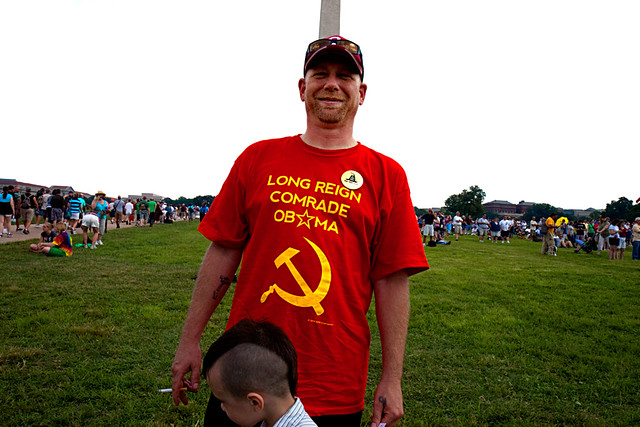
Washington. This was the Glenn Beck rally, with Sarah Palin as a speaker.

New York.
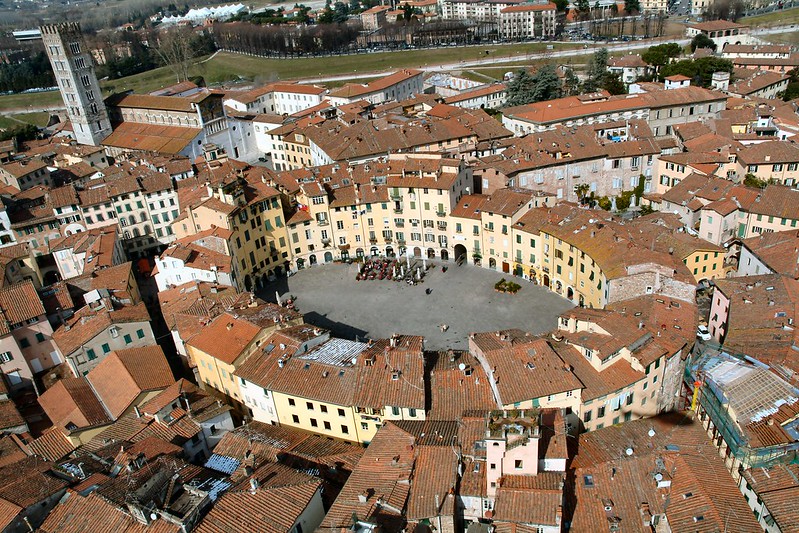
My final image, something I found on the web, shows a kind of sanity that we can aspire to. This is the piazza in Lucca in central Italy. This section of the city was built before the automobile. In the square there are no directions or landscaping. Nothing tells you where to go or where to sit. The automobile is absent and we can experience the pleasure of just seeing each other face-to-face, walking around—what we call loitering. This is a very human thing. Unmediated contact. Because in a sense, life is good enough as it is. What more do you want? You already have utopia. We keep putting in barriers. Or multitasking. On the train I see people compulsively typing on their laptops or putting in their earbuds—that’s a kind of insanity. It’s even hard to have a conversation in this country without music in the background because most public places have music and television. Why this fear of the unmediated experience, the direct experience? Maybe we can’t stand how beautiful life really is. I think the way to move forward is to say no to these interruptions, to these barriers. It might not be utopia but it’s better than what we have right now.
.
2 comments:
Linh
Beautiful. Powerful. The Truth in many colors. What it means to be human to the majority of humans.
Please never stop doing what you do.
Peace
Rev. Pete
I thoroughly enjoyed your message and graphics. I often speculate on the number of persons who think as you (or I) do, but feel alone in those longings for community. It's as if a solution is out there, which could change the nature of our interaction and fabric as a society, but the question is: how do we arrive at it?
Post a Comment